Being overweight is a serious and complex disorder that can affect one’s life. But can you get disability for being obese? Read on to learn whether Obesity is a disability, and how you can claim disability benefits if you have other disorders associated with it.
Contents
Can you get a disability for Obesity? The answer to this question is not a simple one. More than 72 million people in America are obese. The rising numbers are even scarier to people who see no absolute cure for the disease.
Generally, a person with a Body Mass Index of 30 or more is known as obese. Although this number might appear meaningless to you, with consistent effort, you can improve upon it and get rid of your obesity.
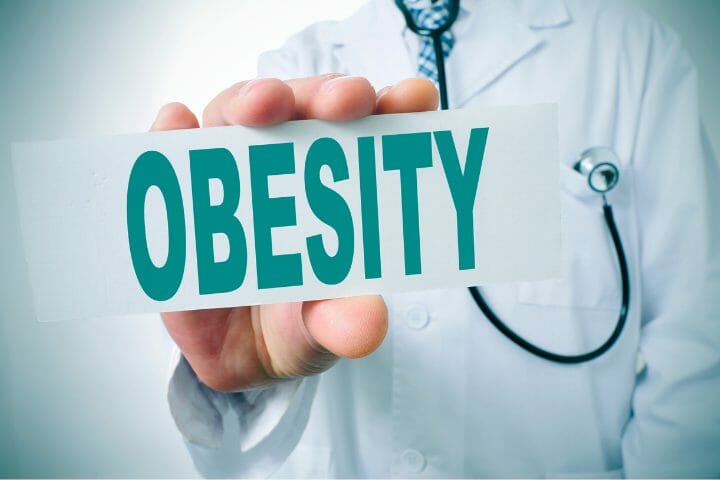
However, having disability benefits for Obesity can be helpful, despite knowing that it is not included under Social Security disability. So how do you go about getting disability benefits for something that is not counted as a disability at all? Read on.
Can I Get Disability Benefits For Obesity?
Obesity is a sign of a medical disease. When your body’s fat and height fail to correspond well together, a person becomes obese.
The Social Security Administration does not consider Obesity as a medical impairment. However, until 1999, the Social Security included Obesity in the official list of medical impairments. The agency later decided that the condition itself cannot stop a person’s functionality.
The Social Security Administration rules that a person can still qualify for disability benefits based on proper medical evidence. The SSA believes that the condition should be severe enough to impact the working capacity of an individual. In this case, two states make you eligible for disability benefits.
- Your condition must be “medically determinable impairment”.
- It should reduce your Residual Functional Capacity to make you unable to do any prior or new work.
You might also like to read: Can You Get Disability For Alcoholism?
Which Impairments Are Associated With Obesity?
A person with Obesity is likely to bear the risk of other health problems by a large percentage. However, Obesity doesn’t need to cause other health problems. It is just that an obese person is at a greater risk of these diseases than the risk of an otherwise healthy person.
Sudden weight gain and obesity makes irregular changes in hormones and metabolism levels. Also, overeating fat can raise the bad cholesterol, increasing the risk of heart diseases. Additionally, being overweight poses a significant concern for other medical conditions:
- Type II Diabetes
- Heart Disease (including heart attack, high blood pressure, stroke, and Atherosclerosis)
- Osteoarthritis
- Respiratory problems (Obesity hypoventilation syndrome, asthma, sleep apnea, etc.)
- Mental health diseases
- Different types of Cancer (esophagus, kidney, colon, liver, breast, pancreas, ovaries, etc.)
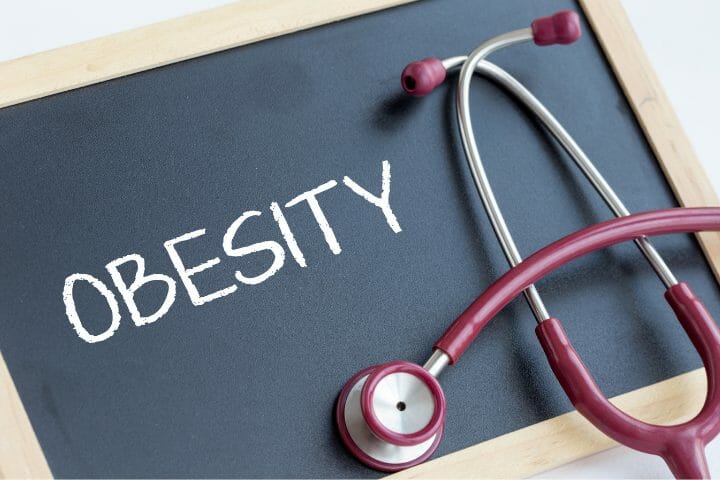
How does The SSA Establish Obesity as a Medically Determinable Impairment?
As per the definition by Social Security Administration, a health disease is established as a Medically Determinable impairment when laboratory and clinical medical records can prove the effects of the illness.
In particular, clinical and laboratory evidence should have measured height and weight, waist size, and Body Mass Index (BMI). Additionally, the evidence of weight, waist size and BMI should show a consistent pattern of Obesity if you wish your disorder to be termed as a Medically Determinable Impairment.
For this reason, presenting symptoms or a description of the diagnosis is not going to be of any help. The authorities will only check if you have strong evidence that can support your reasons behind claiming a disability.
You might also like to read: Can You Get Disability For Congestive Heart Failure?
When is Obesity a Severe Impairment?
Being overweight is not so uncommon these days. However, data shows that 1 in 5 Americans have BMI that can go beyond 30. Among many other reasons, eating patterns, a sedentary lifestyle, and several untreated health problems are primarily responsible for the disease.
Obesity becomes severe when all the medical evidence declare the person to be physically and mentally incapable of doing essential work. While deciding if the impairment is challenging enough, Social Security focuses on functional limitations.
Functional limitations are doctor’s notes that restrict a person from performing certain specific tasks. Interestingly, as per the organization itself, “no specific weight or BMI makes a condition severe”. The rule of thumb is to analyze the condition based on an individual’s situation.
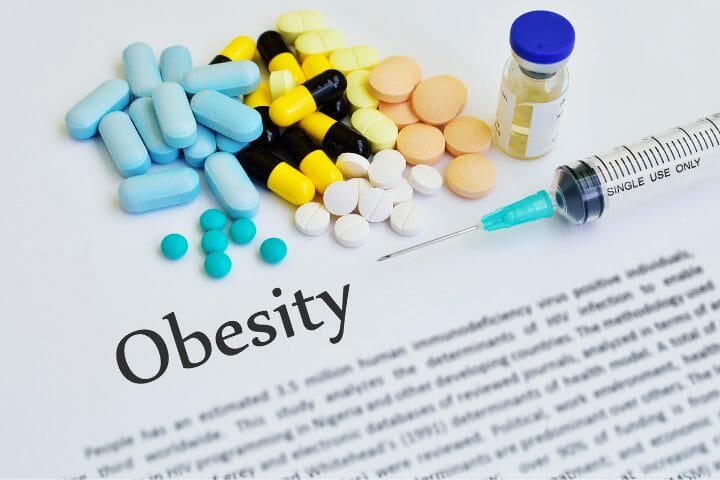
Obesity and SSA’s List of Impairments
The Bluebook of Social Security enlists only those impairments that are likely to make a person incompetent to indulge in any physical activity. It is already known that Obesity is not known as a listed impairment.
So, a person with Obesity may step back when applying for Social Security Disability Insurance (SSDI) or Supplemental Security Income (SSI). But the good news is you can still get approved for disability benefits:
When your Obesity is severe enough and is equal to any functional limitations listed under the list of impairments in severity. For instance, Obesity can make your spine inflexible, which denotes difficulty bending. This disorder is listed under Musculoskeletal disorders, under 1.00 listing. Hence, you can get disability under this disorder instead of obesity.
It should fulfil the medical condition requirements that make the condition severe to be listed under the Social Security list of impairments.
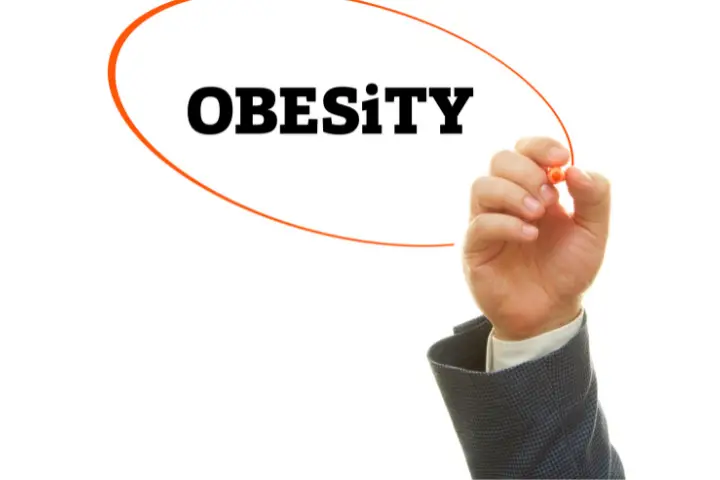
How To Get A Medical-Vocational Allowance If You Are Obese?
A Medical Vocational Allowance is the insurance benefits a person may receive if their medical conditions do not meet the SSA listing. Your medical condition should meet all the requirements to claim for allowances under medical-vocational allowance:
- Your disease should be at a critical stage to stop you from engaging in any Substantial Gainful Activity (SGA);
- Your impairment, being severe, is not included in the listing of impairments.
The evaluation process of Social Security is simple to understand whether a person with Obesity becomes reliable or can live an independent life. For this matter, the agency will start their assessment process, keeping in mind the grid, to start applying Step 5 under the vocational allowance.
Step 1: The consultant will check whether you are employed, self-employed or taking part in any activity for a living. For this purpose, your income should be less than $1,090 a month to get the allowance.
Step 2: The administration also looks at the intensity of Obesity to understand if you require medical benefits.
Step 3: Next, a careful assessment is done to ensure that your condition matches up to any criteria needs of the listed medical diseases.
Step 4: A brief medical record containing the diagnosis, symptoms, and findings is also done to maintain records.
Step 5: Based on the available medical proof, the department will recognize your age, education, skills, past work experience (vocational factors) and Residual Functional Capacity (RFC) to determine if you can still pursue any available work. The primary intent behind screening your profile is to understand your capabilities despite having a medical disease.
Lastly, if the authorities find that you are helpless to do past or other jobs, in that case, they will approve your claim for a medical-vocational allowance.
You might also like to read: Can You Get Disability For Being Short?
What If I Lose Weight After Disability Approval?
A medical condition can be reversible. While severe cases of Obesity make it hard to shed extra kilos, a few rare cases can still show signs of improvement. If you start to lose weight after getting approval for disability, Social Security may consider your condition under “medical improvement”.
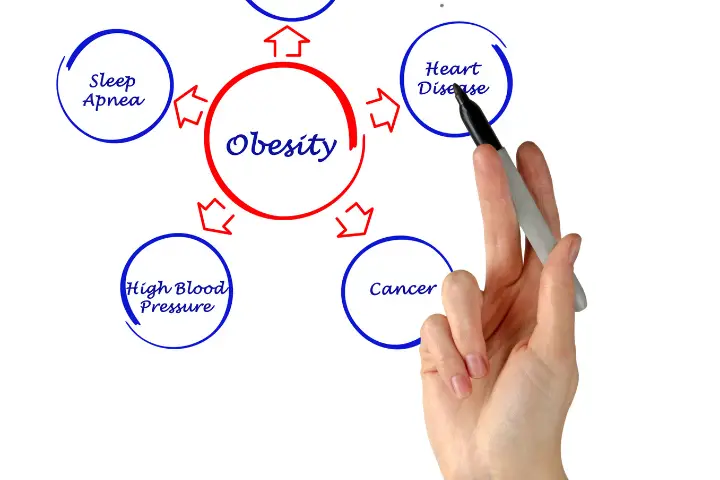
However, they will always check your weight loss to ensure your rights on your disability claim. If you have lost less than 10% of body’s normal weight, they would still not deny your claim. However, a weight loss of more than 10% would eventually be seen as an improvement for your disease, thereby rejecting your insurance claim.
Additionally, the SSA will also see if other health diseases accompanying Obesity are improving. If not, you still have a chance to take the disability approval.
Frequently Asked Questions
#1 What level of Obesity is a disability?
In medical terms, a person’s weight divided by the square of their height is a measurement of calculating the BMI of an individual. However, Social Security does not consider any specific weight or Body Mass Index to call Obesity a disability.
Nevertheless, it works on certain conditions that a person with Obesity may have to fulfil to attain rights on disability.
#2 Does being fat count as a disability?
Being overweight does not in itself imply a disability. When you happen to see someone whose weight is three times more than the healthy weight, it does not always make a person obese. As per the law of social security, any person whose weight affects their ability to do basic and job-related work activities can enjoy disability for Obesity.
#3 What does the CDC consider obese?
The Centers for Disease Control and Prevention states that an adult with a BMI of more than 30 is obese.
Wrap Up
No medical problem should interfere with your right to live independently. While disability programs may be the last resort to take off the financial burden, a person should follow a healthy diet and exercise as a priority.
We hope the article considers all your questions regarding Obesity. If you found it helpful, please share your feedback in the comments.
